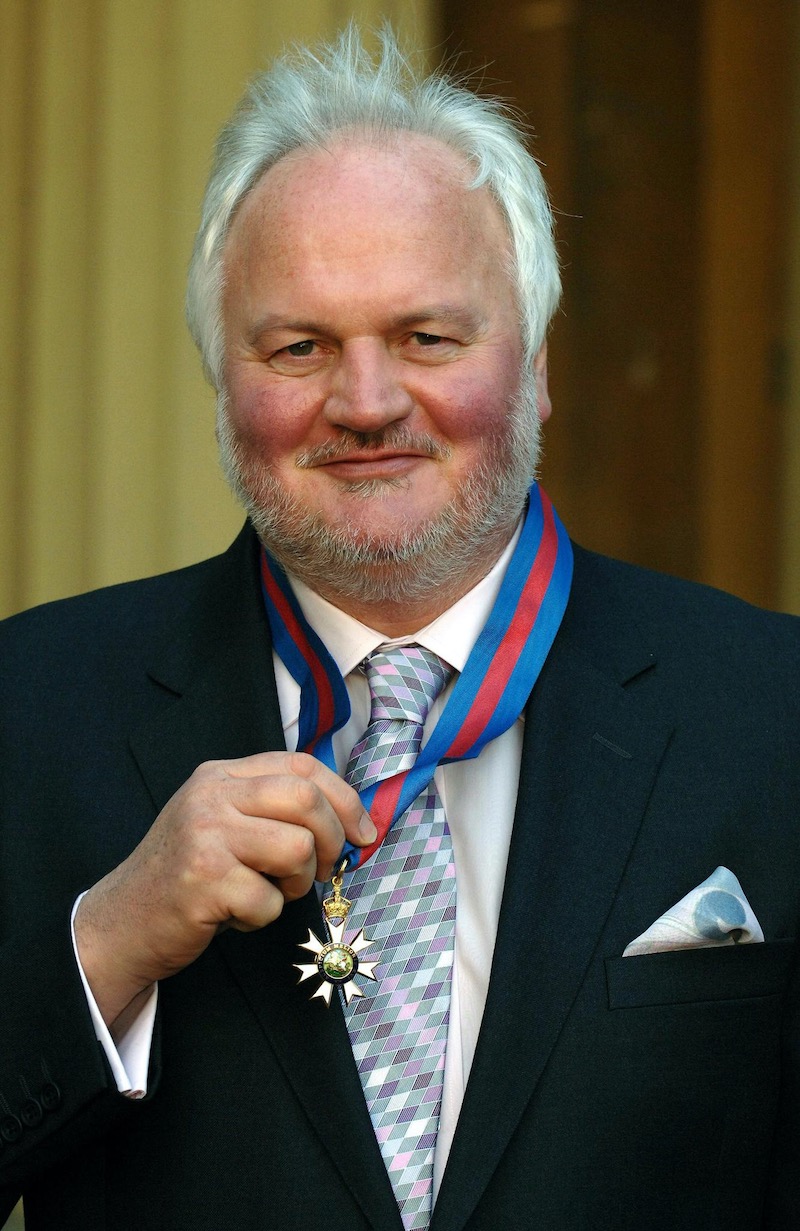Now I know what it must be like to be called for a viva on your PhD. Last week a programme went out on the BBC to launch the new series of Radio 4’s in-depth interview called The Spark. In it the journalist Helen Lewis – formerly deputy editor of the New Statesman and now a writer for the prestigious American magazine The Atlantic – puts under the spotlight someone with a big idea on how the world could be made a better place. Last week it was me, and since the programme lasts more than 40 minutes, I reckon it constituted the most thorough grilling I have had on the subject of my new book Philanthropy – from Aristotle to Zuckerberg.
Forty minutes is a long time to be alone in the hot seat. But is no time at all to tell the story I unfold in the book which took me more than five years to research and write. Five years gives you plenty of time to forget the parts of the book I wrote early on so I found myself in the odd position of having to mug up on my own work. It was rather like preparing for an exam.
Over the years, in more than three decades as a journalist, I have occasionally encountered the odd realisation that I don't know what I actually think about a subject until I have finished writing about it. There is something about the writing process which is about more than communicating ideas. It is about shaping them. More than that, it is about encountering them and wrestling with them.
Editors who are not writers – and it is possible to be a good editor, of sorts, without being a decent writer yourself – often fail to understand this and expect the amount of time it takes to write something to be proportionate to the number of words involved. Sometimes this is indeed the case. It is possible to knock off a third leader – the small, supposedly amusing editorial at the bottom of the column of leading articles in a national newspaper – in 10 or 15 minutes. But sometimes that can take as long as writing a full-page 2000 word broadsheet feature.
What takes the time is the preparatory reading and the thinking. In writing something there is almost always a watershed moment when you suddenly feel in command of the subject and know what you want to say (although sometimes this is merely forced upon you by a deadline).
Helen Lewis is an engaging conversationalist in The Spark. She creates a relaxed and discursive atmosphere. But there is a clear formula to the programme which involves describing the problem, outlining the solution, reflecting on the personal impulses which drove you to tackle the subject, and in setting out the idea in more depth and then encountering the obvious objections to it. This forces you to think about what you have written in a slightly different way.
In a sense this is true of any kind of summary that you make of your work. First talk I gave on the book was to the Oxford and Cambridge Club and it involved setting out the central thesis in a way which would engage an audience with a sense of narrative peppered with anecdote. Inevitably there is much which has to be omitted. But you get a new idea of one of the possible shapes of your own work.

Paul Vallely, pictured here at Buckingham Palace after collecting a CMG from Queen Elizabeth II for services to journalism and the developing world. Pic: Fiona Hanson/PA
That is even more the case when somebody else selects from your work in accordance with their own preferences or prejudices. Before publication the editors at The Guardian kindly decided to run 5000 extract entitled How Philanthropy Benefits The Super-Rich. It centred on chapter 16 of the book which is entitled Is Philanthropy Bad For Democracy? In the book the answer to that question is Yes and No. The Guardian extract emphasised the latter (and forgot about the question mark) in accordance with what its editors assumed their readers wanted. The significant Twitter traffic which followed it seemed to suggest that they did indeed know their readers very well.
The downside of this was that a group of philanthropists and philanthropy professionals decided that the book was anti-philanthropy. Most of them had not read it; some had not even read the Guardian extract but only the tweets endorsing it. I had to write a long article dis-abusing them of this and suggesting that they actually read the book from Aristotle to Zuckerberg before forming a judgement. Of course, this is a big ask in the modern world, where rushing to judgement is commonplace.
But drawing conclusions about the book on the basis of an extract from one chapter is as potentially misleading as reading the article on Pope Francis and philanthropy I wrote for The Tablet – and the piece on charity and justice I wrote for the Jewish Chronicle or the one on George Cadbury for the Quaker magazine The Friend – and deciding that Philanthropy – from Aristotle to Zuckerberg is an essentially religious book.
In fact it centres on a contrast between the Greek and Jewish visions of giving, one societal and the other religious, and suggests that the instincts of the spiritual tradition need incorporating into the secular values of contemporary philanthropy. But it is rich in other aspects.
The online launch of the book at the British Library focused on the treasure trove of ancient and modern documents in the library's collection which I used in my research (an online exhibition of that will appear on the British Library website soon). I have done a podcast with Barclays Private Bank on giving and conducted a range of differently-focused broadcast interviews in Ireland, Australia and the United States. I have discussed philanthropy and international development at the Blavatnik School of Government in Oxford. In the coming weeks I will be talking about philanthropy and democracy at the LSE and philanthropy and social action at the RSA.
It has all been a very interesting process. All these different distillations and digests are fruitful in their own ways. But I think the interview with Helen Lewis on The Spark gives perhaps the most balanced and nuanced summary of what the past five years have been about. Though to find out properly, of course, you could always buy the book.
Philanthropy – from Aristotle to Zuckerberg by Paul Vallely is published by Bloomsbury.
Listen to The Spark: Paul Vallely and Philanthropy.



 Loading ...
Loading ...
What do you think?
You can post as a subscriber user ...
User comments (0)